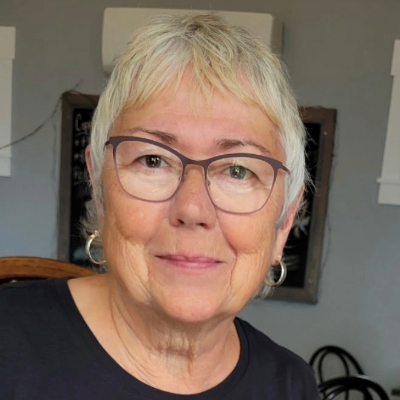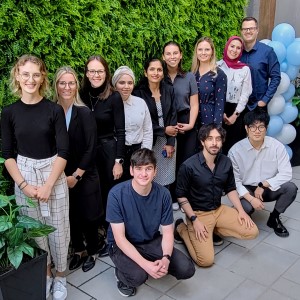 “When we’re measuring outcomes after surgery, it’s not black and white — there are varying shades of grey — and this research helps to reveal those shades for patients,” says Gurlie Kidd, a patient partner who has been working with the AIMS Research Group for several years.“What kind of recovery can I expect after surgery?” Although this is one of the most common questions older patients ask before an operation, it turns out that researchers haven’t been reporting this data in a very useful way.
“When we’re measuring outcomes after surgery, it’s not black and white — there are varying shades of grey — and this research helps to reveal those shades for patients,” says Gurlie Kidd, a patient partner who has been working with the AIMS Research Group for several years.“What kind of recovery can I expect after surgery?” Although this is one of the most common questions older patients ask before an operation, it turns out that researchers haven’t been reporting this data in a very useful way.
According to a new publication from The Ottawa Hospital’s Aging Innovation In Perioperative Medicine & Surgery (AIMS) Research Group, research studies typically group all “non-hospital discharges” together, without saying where the patient was discharged or how long it took.
For patient partners such as Gurlie Kidd, it would be much more helpful to know the chance of being discharged to a long-term care facility versus a temporary rehabilitation centre, and how long each step in the journey might take.
Gurlie co-authored the new research study with the AIMS team, published in the British Journal of Anaesthesiology.
The study looked at ICES data from nearly 85,000 older surgical patients in Ontario, developing a graphical approach to show where patients were living at various time points after surgery.
“When we’re measuring outcomes after surgery, it’s not black and white — there are varying shades of grey — and this research helps to reveal those shades for patients,” says Gurlie, who has been working with the AIMS group for several years.
Dr. Emily Hladkowicz, Clinical Research Program Manager for the AIMS Research Group, works closely with Gurlie and other patient partners to ensure that the team’s research is focused on patient priorities.
“Our patient partners all emphasized the same thing: understanding what life after surgery looks like is essential,” says Dr. Hladkowicz, first author on the new  The AIMS Research Group is working to improve outcomes for older adults with frailty after surgery.study. “Older adults want clear information about where they might go after leaving the hospital so they can plan ahead, aim to return home, and make truly informed decisions about surgery. Saying someone will have a ‘non-home discharge’ isn’t enough; rehab and long-term care are very different.”
The AIMS Research Group is working to improve outcomes for older adults with frailty after surgery.study. “Older adults want clear information about where they might go after leaving the hospital so they can plan ahead, aim to return home, and make truly informed decisions about surgery. Saying someone will have a ‘non-home discharge’ isn’t enough; rehab and long-term care are very different.”
The AIMS Research Group, founded by Dr. Daniel McIsaac in 2016, aims to improve outcomes for older adults with frailty after surgery.
“Partnering with patients brought so many important insights,” Dr. McIsaac, anesthesiologist and senior scientist at The Ottawa Hospital and Clinical Research Chair in Perioperative Innovation at the University of Ottawa. “Our partners made it clear they needed to know the long-term view on recovery to help decide whether to have surgery, as well as the short terms details to plan their life around surgery, such as whether to have someone in checking on their house and pets.”
The AIMS research Group is also a leader in prehabilitation research to help older adults recover faster after surgery.
Authors: Hladkowicz E, Kidd G, Flexman A, Garland A, Hallet J, Kobewka D, McGarr M, Talarico R, van Walraven C, Wijeysundera DN, Wong CL, McIsaac DI; NOTIFY Investigator Group; Canadian Perioperative Anesthesia Clinical Trials Group.
Cores: ICES
Funding: Canadian Institutes of Health Research, The Ottawa Hospital Academic Medical Organization
The Ottawa Hospital is a leading academic health, research and learning hospital proudly affiliated with the University of Ottawa and supported by The Ottawa Hospital Foundation.
